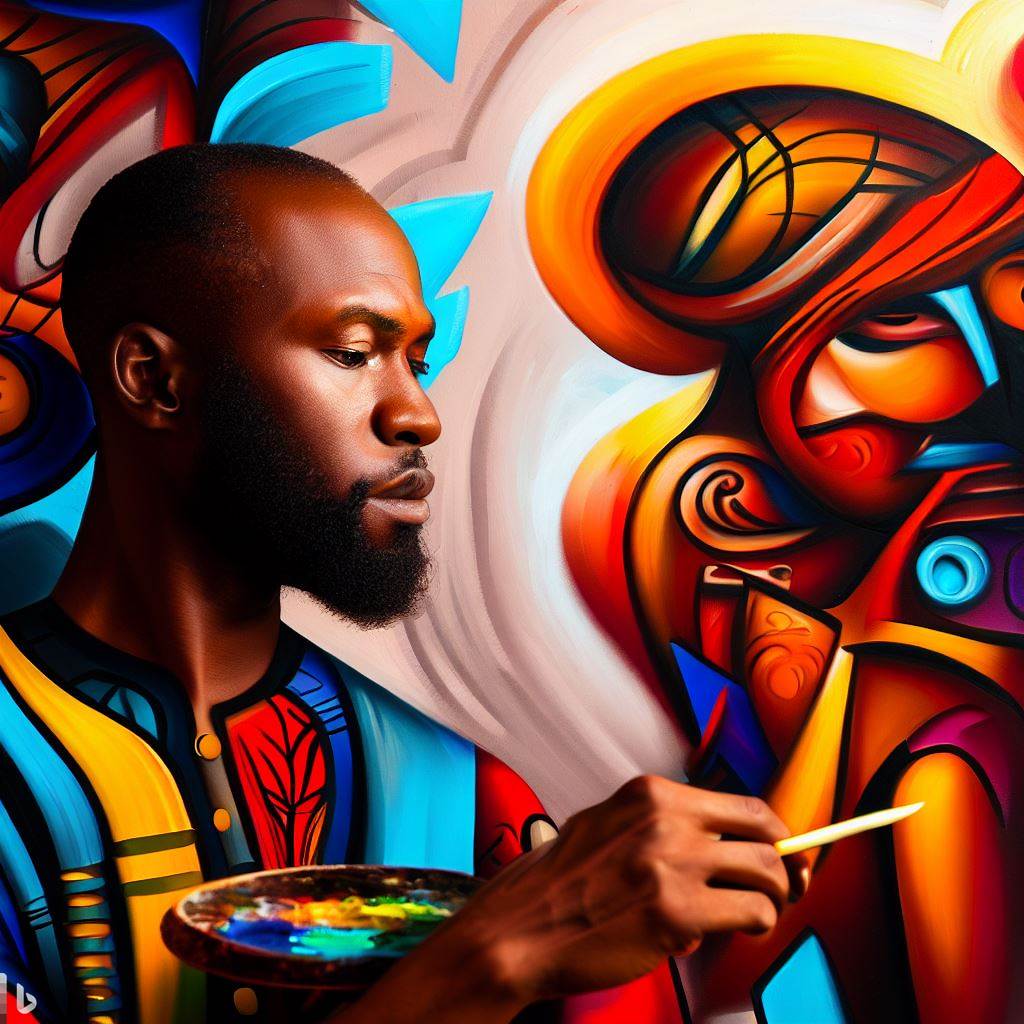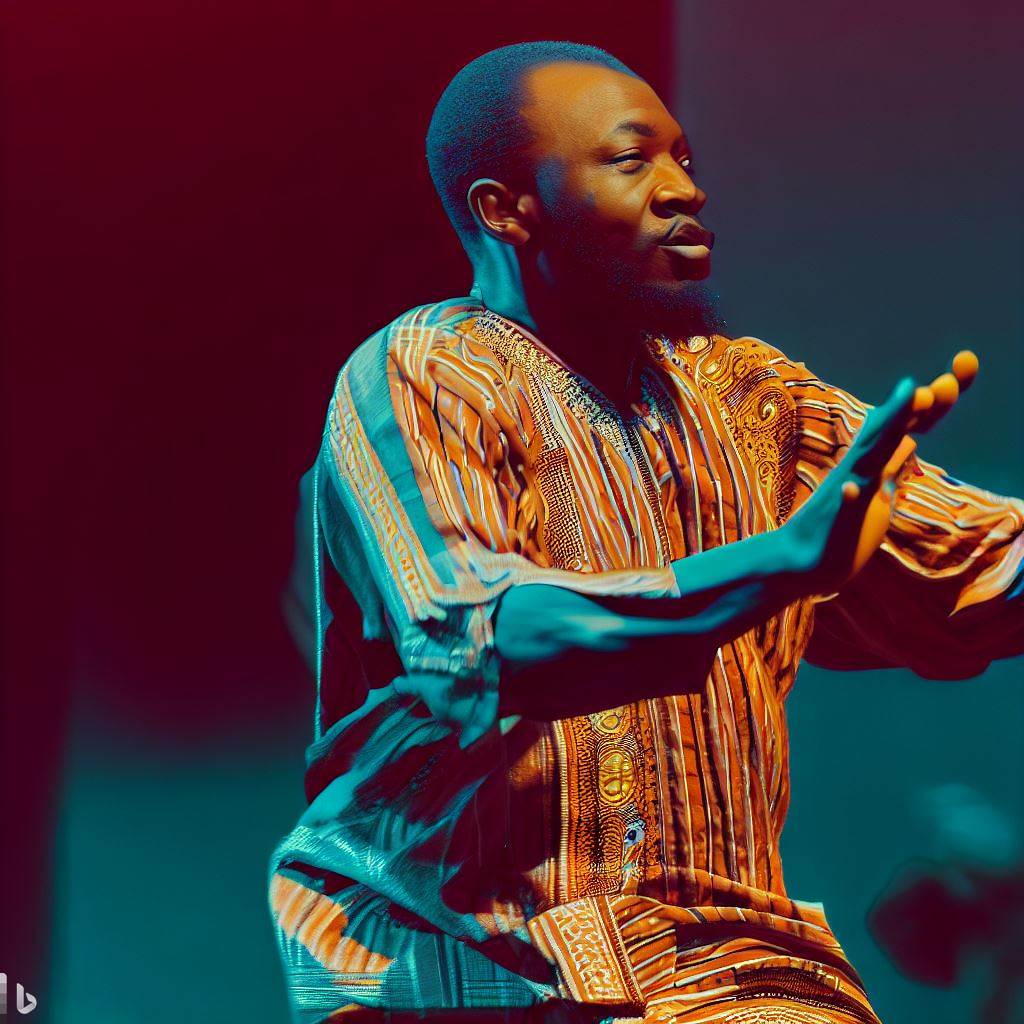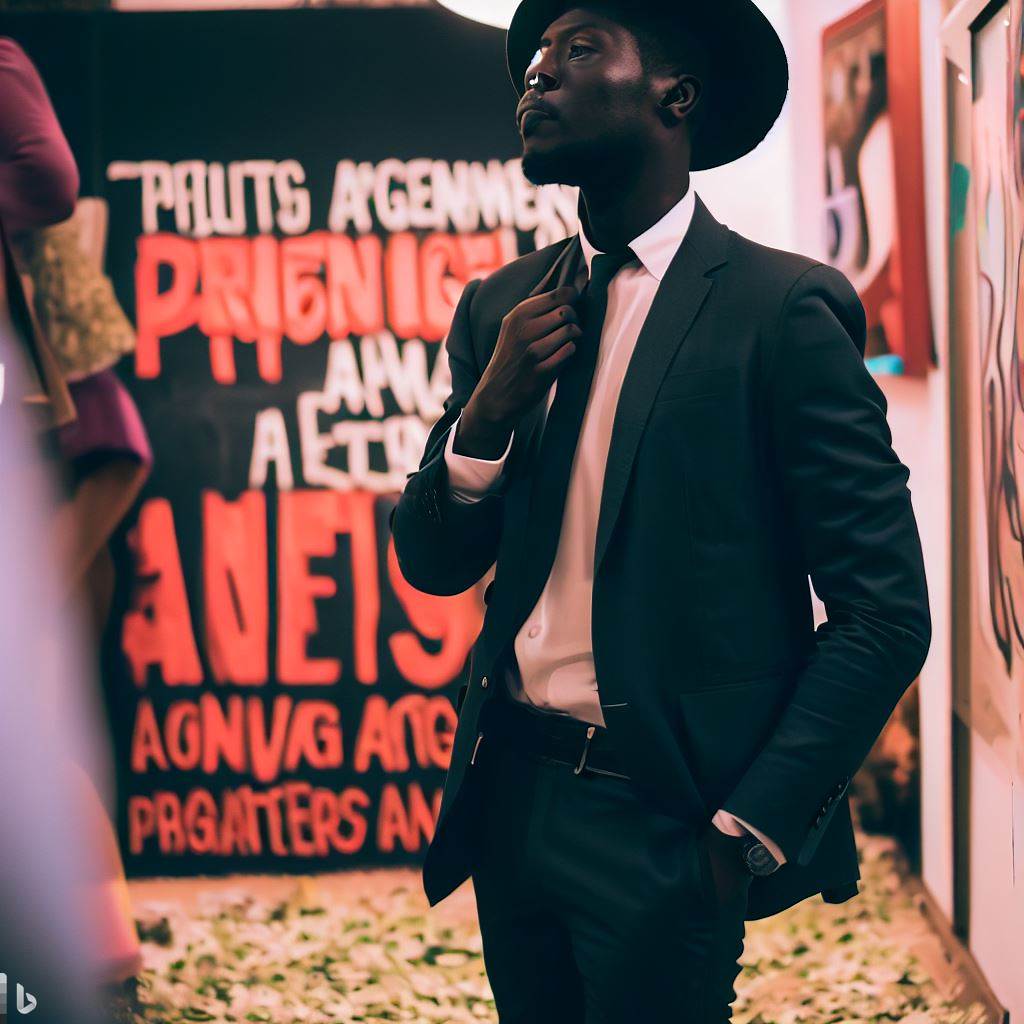Introduction
Legal Nigerian Art Management context is a multifaceted practice that involves the planning, organising, and implementation of the creation, promotion, and preservation of art.
Brief Explanation of Art Management
Art management encompasses a wide range of tasks.
This includes curating exhibitions, coordinating art events, handling artist contracts, marketing art pieces, and overseeing the financial aspects of art enterprises.
Importance of Legal Aspects in Art Management
Legal aspects play a crucial role in ensuring the smooth operation of art management in Nigeria.
Clear legal frameworks protect artists’ rights, prevent copyright infringement, and regulate the sale, export, and import of artworks.
Additionally, legal considerations are essential in establishing contracts between artists and galleries, ensuring fair compensation, and protecting the interests of all stakeholders in the art industry.
Furthermore, legal knowledge is necessary for managing intellectual property rights, resolving disputes, and navigating issues such as cultural heritage protection and artist resale rights.
Understanding the legal aspects of art management is vital in the Nigerian context.
It ensures the ethical and lawful operation of art practices, safeguards artists’ rights, and promotes the growth and sustainability of the art industry in the country.
Overview of the Nigerian art scene
- Nigeria has a vibrant and diverse art scene encompassing various forms of visual expression.
- The country has a rich cultural heritage that has greatly influenced its art scene.
- The Nigerian art scene includes a wide range of artistic practices such as painting, sculpture, photography, and performance art.
- The art scene is not only centred in major cities like Lagos and Abuja but also extends to other parts of the country.
- Nigeria has a strong tradition of indigenous art forms that have been practices for centuries.
- Traditional Nigerian art includes tribal masks, wooden carvings, textiles, and pottery.
Growth and recognition of Nigerian artists internationally
- In recent years, Nigerian artists have gained significant recognition and success on the international art market.
- Artists such as Ben Enwonwu, El Anatsui, and Njideka Akunyili Crosby have received critical acclaim and achieved high sales at auctions.
- Nigerian artists are known for their unique styles, blending traditional African aesthetics with contemporary influences.
- The international recognition of Nigerian artists has opened up opportunities for collaborations and exhibitions abroad.
- Nigerian art fairs, such as the Lagos Biennial and the ART X Lagos, have also contributed to promoting Nigerian artists globally.
Emerging art galleries and institutions in Nigeria
- The Nigerian art scene has witnessed the proliferation of new art galleries and institutions in recent years.
- Galleries like Rele Gallery, Art Twenty One, and SMO Contemporary Art have become prominent platforms for showcasing Nigerian and African art.
- These galleries not only provide exhibition spaces but also offer educational programs and support for emerging artists.
- Art institutions such as the National Gallery of Art and the African Artists Foundation play a crucial role in promoting Nigerian art.
- These institutions organize exhibitions, workshops, and residencies, fostering the growth of the Nigerian art scene.
The Nigerian art scene is a vibrant and dynamic landscape that continues to grow and gain international recognition.
Nigerian artists have made significant contributions to the art world, blending traditional African aesthetics with contemporary influences.
The emergence of new art galleries and institutions provides platforms for artists to showcase their work and further enhance the visibility of Nigerian art.
With its rich cultural heritage and diverse artistic practices, Nigeria is poised to continue its influence on the global art scene.
Legal framework for art management in Nigeria
Copyright laws and protection of artistic works
In the Nigerian context, there is a legal framework for art management that allows for the protection and promotion of artistic works.
One important aspect of this framework is copyright laws, which provide legal protection for artistic works.
- These laws give creators exclusive rights to reproduce, distribute, or display their works.
- Copyright protection extends to various forms of art, including paintings, sculptures, music, and literary works.
- Artists are encouraged to register their works with the Nigerian Copyright Commission to enjoy full legal protection.
Intellectual property rights play a crucial role in the Nigerian art scene
- This includes trademarks, patents, and industrial designs that protect the unique aspects of artistic creations.
- Artists can register their trademarks to safeguard their artistic brand identities.
- Artists can also patent new and innovative art techniques or technology.
- Industrial designs provide legal protection for the visual elements of artistic creations.
Enforcing intellectual property rights can be challenging in the Nigerian context.
- Artists often face issues of piracy and counterfeiting, which undermine their economic rights.
- Efforts are being made to strengthen intellectual property enforcement measures.
- Collaboration between artists, art managers, and the government is essential to combat infringement.
The legal framework in Nigeria also includes laws that govern the management and exportation of cultural artifacts.
- The National Commission for Museums and Monuments Act regulates the export of cultural heritage objects.
- Art managers must adhere to these laws and obtain appropriate permits before exporting artworks.
The legal framework for art management in Nigeria is constantly evolving to meet the challenges of the modern art world.
- Efforts are being made to align Nigerian laws with international copyright and intellectual property standards.
- These efforts seek to attract foreign investment in the Nigerian art industry and protect the rights of local artists.
- Government initiatives and collaborations with arts organisations are essential to ensure a vibrant and legally sound art sector.
Contracts and agreements in art management
Importance of written agreements
Contracts and agreements in art management play a crucial role in ensuring a smooth operation within the Nigerian art scene.
Written agreements are of immense importance in this context as they establish clear guidelines and protect the interests of all parties involved.
Here are some commonly used agreements in the Nigerian art scene:
- Consignment Agreements: These agreements are often used when galleries or art dealers sell artworks on behalf of artists.
They specify the terms of the consignment, including the agreed-upon commission, duration of the consignment, and the responsibilities and obligations of each party. - Commission Agreements: Artists may enter into commission agreements when they accept custom art requests from clients.
These agreements outline the scope of the commissioned work, payment terms, delivery deadlines, and any additional conditions or requirements. - Licensing Agreements: Artists sometimes license their artworks to individuals or organisations for reproduction or use in various media.
Licensing agreements establish the terms and conditions of this arrangement, including the duration, territory, and royalties to be paid to the artist. - Exhibition Agreements: Artists often collaborate with galleries or other exhibition spaces to showcase their works.
Exhibition agreements specify the details of the exhibition, such as the dates, location, promotion efforts, and the division of sales proceeds between the artist and the venue. - Loan Agreements: Museums or collectors may borrow artworks from artists for temporary exhibitions or displays.
Loan agreements govern the terms of the loan, including insurance, transport, display conditions, and the duration of the loan.
These agreements serve several purposes within the Nigerian art management context.
Read: The Role of Journalists in Nigeria’s Election Coverage
Art transactions and sales
Regulations on art sales in Nigeria
Art transactions and sales are regulated in Nigeria to ensure fairness and protection for both artists and buyers.
The regulations on art sales in Nigeria are governed by various laws and institutions.
These laws include the Copyright Act, which protects the rights of artists and ensures that their work is not reproduced without permission.
Moreover, the National Gallery of Nigeria is responsible for the licensing and regulation of art dealers and galleries.
Art dealers and galleries must obtain a license from the National Gallery of Nigeria to legally operate in the country.
This ensures that they comply with the necessary regulations and standards set by the institution.
Additionally, art transactions in Nigeria are subject to taxation and customs duties.
Income generated from the sale of art is taxable, and artists and art dealers are required to pay their taxes accordingly.
Customs duties are also applicable when importing or exporting art, and these duties can vary depending on the value and classification of the artwork.
The Nigerian Customs Service is responsible for enforcing these customs duties and ensuring compliance.
Artists and art buyers should be aware of these regulations and obligations to avoid any legal issues.
Proper documentation and transparency in art transactions are crucial to ensure a smooth process and protect the interests of all parties involved.
Art transactions and sales in Nigeria are regulated to promote fairness and protect the rights of artists and buyers.
The regulations on art sales in Nigeria encompass laws such as the Copyright Act and are enforced by institutions such as the National Gallery of Nigeria and the Nigerian Customs Service.
Taxation and customs duties related to art transactions
Taxation and customs duties are also applicable to art transactions, and compliance with these obligations is important to avoid legal complications.
By understanding and adhering to these regulations, the Nigerian art industry can thrive and contribute to the cultural and economic development of the country.
Read: Succeeding as a Female Music Producer in Nigeria’s Industry

Artistic Collaborations and Licensing
When artists come together to collaborate on a project, it is important to consider the legal aspects involved.
Collaborative projects require clear agreements and contracts to protect the interests of all parties involved.
Legal Aspects of Collaborative Projects
- Copyright Ownership: In artistic collaborations, it is crucial to determine who owns the copyright of the final product.
Copyright generally belongs to the creator, but in collaborative projects, it can be shared or transferred through agreements. - Clear Roles and Responsibilities: A collaborative project should establish each individual’s roles and responsibilities.
This includes defining the specific tasks, deadlines, and expectations of each party, which helps prevent conflicts and ensures a smooth workflow. - Collaboration Agreements: A collaboration agreement outlines the terms and conditions of the project, including copyright ownership, financial obligations, credits, and dispute resolution mechanisms.
It acts as a legal framework for the collaboration and protects the interests of all parties involved.
Licensing Agreements and Royalty Fees
- Licensing Agreements: When artists create a piece of work, they may grant a license to others to use it in exchange for payment or other considerations.
Licensing agreements define the terms under which the artwork can be used, ensuring that the artist retains control over their creation while benefiting financially. - Scope of License: Licensing agreements should clearly outline the scope of the license, including the duration, territory, and specific usage rights granted.
This avoids any ambiguity and ensures that the licensee adheres to the agreed-upon terms. - Royalty Fees: Artists often receive royalty fees when their artwork is licensed for commercial use. These fees compensate the artist for the ongoing use and exploitation of their work.
The licensing agreement should specify the royalty rate, payment terms, and reporting requirements to ensure the artist receives their rightful compensation. - Intellectual Property Protection: Artists must consider intellectual property protection when licensing their work.
Registering their work with the Nigerian Copyright Commission provides additional legal protection and helps in enforcing their rights if infringed. - Termination and Breach of Agreement: Licensing agreements should outline the circumstances under which either party can terminate the agreement.
They should also address breach of agreement issues, such as unauthorised use or non-payment, and the corresponding remedies or penalties that may be imposed.
In the Nigerian context, the legal aspects of art management play a crucial role in ensuring the protection of artists’ rights.
By properly addressing artistic collaborations and licensing through clear agreements and contracts, artists can safeguard their creations and receive fair compensation for their work.
It is essential for artists and art managers to have a thorough understanding of these legal aspects to navigate the art industry successfully.
Read: Spotlight: Women Journalists Making a Difference in Nigeria
Dispute resolution in art management
Mediation and arbitration
Dispute resolution in art management includes mediation, arbitration, and litigation in art-related disputes.
Mediation is a voluntary process in which a neutral third party helps parties in conflict reach a mutually agreeable solution.
Arbitration, on the other hand, involves a neutral third party making a binding decision after hearing both sides of the dispute.
Litigation in art-related disputes
Litigation is the last resort, where parties turn to the court system to resolve their art-related disputes.
Mediation offers the advantage of preserving the relationship between the parties and allowing them to control the outcome.
Arbitration is often chosen when parties want a legally binding decision, but with a more flexible process than litigation.
Litigation provides a formal and legally enforceable resolution, but it can be time-consuming and costly.
In art-related disputes, mediation can be effective in resolving issues relating to contracts, copyrights, or ownership.
Arbitration is commonly used in cases where there is a disagreement over the value of artwork or breach of contract.
Litigation in art management may arise in cases of art theft, forgery, or disputes over authenticity.
Mediation and arbitration can be a faster and more cost-effective means of resolving art-related disputes than litigation.
Mediation and arbitration allow for confidentiality, which can be crucial in sensitive art-related matters.
Litigation, however, offers the advantage of a formal process where decisions are made based on the law.
Mediation and arbitration provide parties with a greater level of control over the resolution process.
Dispute resolution in art management can take different forms such as mediation, arbitration, and litigation.
Mediation and arbitration offer benefits such as preserving relationships, flexibility, confidentiality, and customised solutions.
Litigation, however, provides a formal and legally enforceable resolution, but can be time-consuming and costly.
Each method has its own advantages and should be carefully considered in the Nigerian context of art management.
Read: The Future of Nigerian Journalism in a Digital Age
Ethical considerations in art management
In the Nigerian context, legal aspects of art management raise important ethical considerations.
Authenticity and provenance of artworks
First and foremost, art managers must prioritise authenticity and provenance of artworks.
- Artists’ rights and intellectual property must be respected and protected.
- Art managers should ensure proper documentation and verification of artworks to ensure their legitimacy.
- Counterfeit and fake artworks must be identified and prevented from entering the market.
Cultural heritage and repatriation issues
Cultural heritage is a vital aspect of art management, and repatriation issues are often contentious.
- Art managers must be mindful of the historical and cultural significance of artworks.
- There should be a balance between preserving national heritage and allowing international exhibitions and collaborations.
- Addressing the legal aspects of looted artworks and their repatriation to rightful owners or countries becomes imperative.
Ethics play a crucial role in art management, and it is essential to adhere to principles:
- Stakeholders should follow fair and transparent practices when buying, selling, and valuing artworks.
- Art managers should promote diversity and inclusivity by supporting underrepresented artists and artistic expressions.
- They should avoid conflicts of interest, acting in the best interest of artists and the art community as a whole.
Ensuring the ethical management of art in Nigeria involves collaboration and regulations:
- Art industry stakeholders, including artists, collectors, and institutions, should work together to establish ethical guidelines.
- Enforcing government regulations, like copyright laws and export/import regulations, becomes necessary.
- Organizations like the Nigerian Copyright Commission play a crucial role in protecting artists’ rights and combating piracy.
Education and awareness are key in promoting ethical art management:
- Organizers should arrange training sessions and workshops to educate artists, art managers, and the public about legal and ethical practices.
- Art managers should actively engage in discussions and initiatives to address ethical issues in the art industry.
- It is important to raise awareness about the cultural significance of Nigerian art and the need for its protection and preservation.
Generally, ethical considerations are vital in the legal aspects of art management in Nigeria.
Authenticity, provenance, cultural heritage, and repatriation issues require careful attention.
By adhering to ethical principles and collaborating with stakeholders, art managers can contribute to a thriving and ethical art industry in Nigeria.
Conclusion
Importance of legal aspects in art management in Nigeria
The legal aspects of art management are crucial in the Nigerian context to protect the rights of artists, ensure fair practices, and foster a thriving art industry.
It is evident that understanding copyright laws, contracts, and intellectual property rights is essential for artists and art managers.
By securing legal protection for their work, artists can safeguard their creations and financial interests.
Artists and art managers to navigate the legal landscape effectively
Artists and art managers should consult with legal professionals specialising in art and entertainment law to navigate the legal landscape effectively.
This ensures compliance with regulations, avoiding potential legal disputes, and maximising opportunities in the art industry.
Furthermore, artists and art managers should keep themselves informed about changes in the legal framework and industry standards.
Staying up-to-date is crucial for adapting to new regulations and making informed decisions regarding collaborations, licensing, and sales.
Additionally, artists should consider establishing legal entities, such as companies, to protect their personal assets and limit liabilities.
Art managers can also benefit from legal advice when drafting contracts, managing financial transactions, and negotiating partnerships.
Ultimately, by prioritising the legal aspects of art management, Nigerian artists and art managers can create a sustainable and thriving art ecosystem.
Compliance with legal requirements not only protects the rights of stakeholders but also fosters a favourable environment for creativity, innovation, and economic growth within the art industry.




